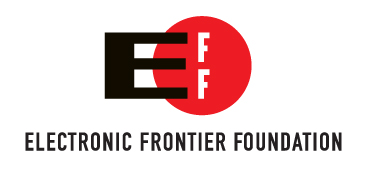SAN FRANCISCO – A new report by the Electronic Frontier Foundation is exposing how tech companies are spying on students using classroom technology that tracks names, birth dates, browsing histories, location data and other information.
“EFF’s ‘Spying on Students: School-Issued Devices and Student Privacy’ shows that state and federal law, as well as industry self-regulation, has failed to keep up with a growing educational technology industry,” according to the group’s announcement last week.
MORE NEWS: Know These Before Moving From Cyprus To The UK
“At the same time, schools are eager to incorporate technology in the classroom to engage students and assist teachers, but may unwittingly help tech companies surveil and track students. Ultimately, students and their data are caught in the middle without sufficient privacy protections.”
The report notes that the proliferation of school-issued computers for students, coupled with educational services utilizing the cloud, is increasingly exposing information about students to tech companies without the knowledge or consent of parents.
The three-part analysis focused on surveys and interviews with parents, an in-depth look at legal and policy framework for education technology companies, and recommendations to better protect student privacy.
The findings showed about a third of all K-12 students in the U.S. use school issued-devices, and roughly half of those students use Google Chromebooks. In total, more than 30 million students, teachers and administrators use the company’s education apps.
“Throughout EFF’s investigation over the past two years, we have found that educational technology services often collect far more information on kids than is necessary and store this information indefinitely,” according to the report.
“This privacy-implicating information goes beyond personally identifying information like name and date of birth, and can include browsing history, search terms, location data, contact lists, and behavioral information. Some programs upload this student data to the cloud automatically and by default.
“All of this often happens without the awareness or consent of students and their families.”
MORE NEWS: How to prepare for face-to-face classes
The report cites interviews with anonymous school employees and parents who put the problem in plain terms.
Matt L., a system administrator for a public school district with 10,000 students, told researchers there’s no telling what tech companies are doing with the data they collect on students.
“I don’t want to say that Google or Chromebooks or any of this stuff is inherently bad,” Matt said, adding that he got into the field to help students gain access to technology.
But “we’re putting all our eggs in one basket that we’re not in control of,” he said. “We don’t know where this student data is going.”
Matt said he poured over Google’s privacy policies, but it reveals very little about how the company uses the information it collects.
“We have privacy policies for our website, and for our student academic records, but not so much for students’ information in regards to what Google is collecting,” he said. “We can’t guarantee what Google is or is not doing with this information. It’s all pretty vague, and it’s not the kind of thing you want to be vague about.”
Matt said he worked to “crank down the lid” on the privacy settings the district can control, but maintaining control amid updates, technology changes, and cloud storage systems is a non-stop chore.
“It’s a really hard problem, but we need to come up with an answer,” he said.
Parents interviewed for the report seem to agree.
California parent Jeff W. told EFF he mounted a campaign to push back against Chromebooks in his daughter’s third grade class because he believes the Family Educational Rights and Privacy Act (FERPA) prohibits Google from sharing data it collects without parental consent, and school officials did not ask for consent.
After haggling through a series of emails, school officials eventually allowed Jeff’s daughter to use an alternative device for fourth grade but insisted on returning to Google services in fifth grade, prompting the father to contact EFF.
The foundation’s legal team issued a letter to the district demanding the option for “all students – if their parents so decide – to use alternative devices, software, and websites, for the upcoming school year and every year.”
“In the end, Google is an advertising company,” Jeff said. “They sell ads, they track information on folks. And we’re not comfortable with our daughter getting forced into that at such an early age, when she doesn’t know any better.”


Join the Discussion
Comments are currently closed.